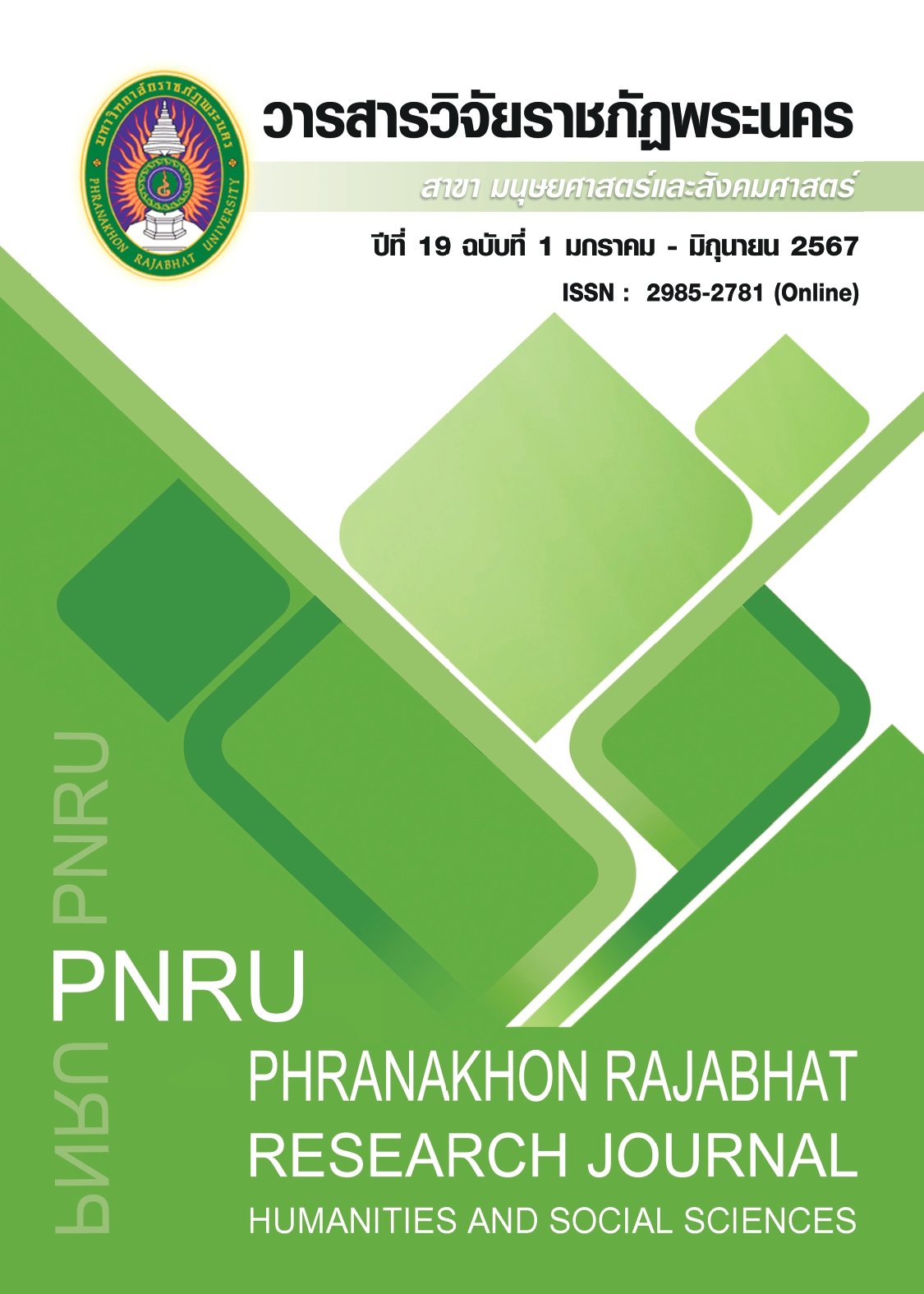การพัฒนาศักยภาพวิสาหกิจชุมชน และการจัดการผลผลิตเกษตรอินทรีย์ กรณีศึกษาวิสาหกิจชุมชนเกษตรอินทรีย์อู่ทอง จังหวัดสุพรรณบุรี
Main Article Content
บทคัดย่อ
การวิจัยครั้งนี้มีวัตถุประสงค์ เพื่อส่งเสริมด้านการพัฒนาศักยภาพวิสาหกิจชุมชน ผ่านกระบวนการการใช้นวัตกรรมในการพัฒนา เพื่อส่งเสริมความร่วมมือกับกลไกวิสาหกิจชุมชนเกษตรอินทรีย์ในพื้นที่อำเภออู่ทอง จังหวัดสุพรรณบุรี เป็นการวิจัยเชิงปฏิบัติการแบบมีส่วนร่วม และการวิจัยเชิงปริมาณ กลุ่มตัวอย่างในการวิจัยจากสมาชิกวิสาหกิจชุมชน 4 กลุ่ม คือ 1.วิสาหกิจชุมชนกลุ่มส่งเสริมเกษตรอินทรีย์อู่ทอง 2.วิสาหกิจชุมชนบ้านดอนหอคอยร้อยรักผลิตภัณฑ์ 3.วิสาหกิจชุมชนส่งเสริมบ้านดอนตะเคียน และ 4.วิสาหกิจชุมชนวนเกษตรบ้านดงเย็น และเจ้าหน้าที่ภาครัฐ 15-20 คน ผลการวิจัย พบว่า
1. การพัฒนาศักยภาพการบริหารจัดการวิสาหกิจชุมชนเกษตรอินทรีย์ ระดับกลุ่ม และบุคคล แบบเครือข่ายไตรภาคี (กลุ่มวิสาหกิจชุมชน นักวิชาการ หน่วยงานภาครัฐ) มีการกำหนดแนวทางในการพัฒนา โดยใช้แนวคิด 5 IN (Innovation) เพื่อขับเคลื่อน Innovation mix (ความคิดริเริ่มสร้างสรรค์ การสร้างแรงบันดาลใจ มีอิสระทางความคิด มีความทันสมัย และรักในสิ่งที่ทำ) กระตุ้นให้สมาชิกได้มีโอกาสในการแลกเปลี่ยน และพัฒนาผ่านระบบเกื้อกูล พึ่งพาอาศัยกันอย่างมีส่วนร่วม การทดแทนทรัพยากร การแปรรูปสินค้าเกษตรอินทรีย์ การจัดทำตลาดเกษตรอินทรีย์ และการสร้างการรับรู้ของกลุ่มวิสาหกิจชุมชนผ่านเวทีในระดับอำเภอ ก่อให้เกิดความยั่งยืนในภาพอนาคตของพื้นที่
2. การการพัฒนาศักยภาพวิสาหกิจชุมชนเพื่อให้เกิดความยั่งยืน เกิดจากการส่งเสริมกระบวนการมีส่วนร่วม กลไกเครือข่ายทางสังคม และการแลกเปลี่ยนความรู้ไปสู่การพัฒนา และการเกื้อกูลกันในรูปแบบสมาชิกเครือข่าย ช่วยส่งเสริมให้เกิดแนวคิดด้านการแปรรูปผลิตภัณฑ์ชุมชน พัฒนาบรรจุภัณฑ์ ตราสินค้า ช่องทางการจัดจำหน่าย สู่การเป็นชุมชนแห่งการเรียนรู้อย่างยั่งยืน
Article Details

อนุญาตภายใต้เงื่อนไข Creative Commons Attribution-NonCommercial-NoDerivatives 4.0 International License.
บทความที่ได้รับการตีพิมพ์เป็นลิขสิทธิ์ของมหาวิทยาลัยราชภัฏพระนคร
ข้อความที่ปรากฏในบทความแต่ละเรื่องในวารสารวิจัยราชภัฏพระนครเล่มนี้เป็นความคิดเห็นส่วนตัวของผู้เขียนแต่ละท่านไม่เกี่ยวข้องกับมหาวิทยาลัยราชภัฏพระนคร และคณาจารย์ท่านอื่นๆในมหาวิทยาลัยฯ แต่อย่างใด ความรับผิดชอบองค์ประกอบทั้งหมดของบทความแต่ละเรื่องเป็นของผู้เขียนแต่ละท่าน หากมีความผิดพลาดใดๆ ผู้เขียนแต่ละท่านจะรับผิดชอบบทความของตนเองแต่ผู้เดียว
เอกสารอ้างอิง
Buadee, N., & Funkhiaw, Adirek. (2019). Guidelines for developing the operational potential of community enterprise groups processing banana products in Mae Ramat District, Tak Province. Journal of Srivanalai Vijai, 9(1),15-24.
Tupkrut, N., Boonkuer, S., & Ampha, O. (2021). Developing Local Community Enterprise in Trang Province for a Chang of Success. Trang: Rajamangala University of Technology Srivijaya.
Laophuangsak P. (2014). Development Of Management Model for Community Enterprise’s Cluster For Enhancing Competitiveness Of Community Economy In Western Region (Thesis). Silpakorn University, Bangkok. (In Thai)
Tiloksakulchai, F. (2006). Evidence-based nursing: principle and method. Bangkok: Faculty of Nursing, Mahidol University.
Valaya Alongkorn Rajabhat University under the Royal Patronage. (2021). A guide to spatial development through the process of envisaging a sustainable community future. Bangkok: P.S. Group Company. (1954) Ltd.
Office of the National Economic and Social Development Board. (2016). National Economic and Social Development Plan No. 12 (2016-2021). Bangkok: Office of the National Economic and Social Development Board.
Agarwal, R., & Prasa, J. (1998). A conceptual and operational definition of personal innovativeness in the domain of information technology. Information Systems Research, 9(2), 204-215.
Kotas, M. (2015). Key success factors for social services organizations in Poland. Management, 19(2), 122-135.
Lu, K., Gray, M.A., Oliver C, Liley, D.T., Harrison, B.J., & Bartholomeusz, C.F. (2004). The acute effect of L-theanine in comparison with alprazolam on anticipatory anxiety in humans. Human Psychopharmacology, 19(7) (2004), 457-465.
Rogers, E. (2003). Diffusion of Innovations, New York, Free Press.
Yi, M. Y., Fiedler, K. D., & Park, J. S. (2006). Understanding the role of individual innovativeness in the acceptance of IT‐Based innovations: Comparative analyses of models and measures. Decision Sciences, 37(3), 393-426.
Kotas, M. (2015). Key success factors for social services organizations in Poland. Management, 19(2), 122-135.


